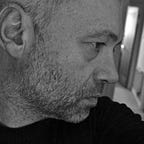Thoughts on Assessment 1
You are now approaching the first assessment on OKHE. This asks you to consider your understanding of Open Knowledge as it relates to your professional practice. In this post I thought I’d set out some aspects to consider, as this may differ from the type of assessment you have written before.
The first consideration is that of tone. Getting the tone right for a blog post, particularly one that is being assessed is not easy. If you are not a blogger already this will take time. Part of the aim of this course is to give you experience in doing this. It took me three false starts in creating a blog before I found the right ‘voice’. In previous years some assessments have tended to read like a traditional essay, while others have been too informal and not provided sufficient critical analysis. You are aiming for something in the middle of these two. Here are some examples of blogs that I think get this tone right:
Audrey Watters — Hack Education (http://hackeducation.com/)
Mike Caulfield — Hapgood.us (https://hapgood.us/)
David Kernohan — Followers of the Apocalypse (http://followersoftheapocalyp.se/)
Kate Bowles — Music for Deck Chairs (http://musicfordeckchairs.com/)
From last year’s course, this post by Kate Holmes is a good example of tone and style, note the use of relevant images to break up text also:
The second aspect to consider is depth of analysis. You are required to draw on your own practice, but you also need to connect this to wider issues, and not just give an account of your own experience. This means linking to other blog posts, academic papers, reports, and so on to demonstrate that you understand how your own practice relates to the broader context. We will therefore be looking for a range of references.
This post from Sam Hemsley from last year does a good job of linking their own practice to local and global initiatives and relevant research. In terms of referencing style, linking them at the appropriate point in the text is desirable. In addition, some people like to provide a formal reference section at the end, which can be useful, but referencing format is not as aspect we are assessing here, rather it is the appropriateness of the references.
Related to this aspect of situating your own experience in the broader context of open knowledge, is one of reflecting on what it means for your practice. One way to approach this is to consider the questions open knowledge raises for your practice. Will it challenge existing economic models? Does it raise issues around privacy? Is there a particular benefit that openness would offer over current practice? You do not necessarily need to have the answers to all the questions you raise, we are experiencing a period of transition so it may be that we simply don’t know how many of these issues will resolve themselves. As I argued in the post on Paradoxes of Open Scholarship, changing practice over the past ten years has placed many previous claims in a new light. Lucinda May from last year’s course highlights some interesting questions that open access raises for university presses.
One last point, this course has only a pass/fail grading, which you should take as an opportunity to explore the development of your blog style. Often in an assessment you are focused on gathering marks as specified in a tight schedule. Part of the aim of this course is to help you develop an online identity, and so the flexibility in the grading here gives you freedom to develop your blogging voice while addressing an interesting topic. I hope you find the assessment engaging and useful. Good luck!
